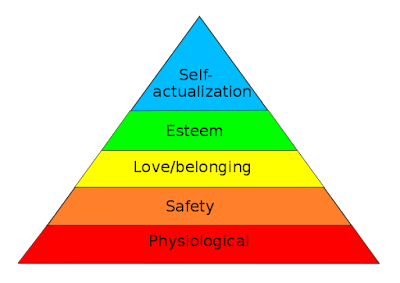Boredom is Good For Your Creativity Says Psychologist Sandi Mann
In the movies, it is usual to see
people solving problems creatively without even trying.
It is common to see a protagonist
in a movie plot the antagonist’s thought patterns in under a minute of thinking
hard.
It can make you feel dull in
comparison if you have ever tried to find a creative solution in 30 seconds
without any success.
Do not feel so bad or so dumb.
Because being creative is not just a thirty-second burst of solutions.
Sometimes, being creative could
be a messy process. It could take you many hours to solve a single problem.
This is hours of brainstorming hitting a brick wall many times.
Sometimes, you even fail to get
the solution while thinking about it. In this case, the solution could pop into
your mind hours after going for another activity. This process of creativity
can be helped by boredom.
Associate Fellow of the British
Psychologist Society and the author of The Upside of Downtime, Sandi Mann, has made a case that being bored could be more
interesting than we thought.
Can you imagine a world in which
every activity is interesting? Where it is interesting to wash the dishes or where
it is super exciting to go to the toilet?
If everything in the world was
interesting, then there would be no need to make anything more interesting.
There would be very few improvements on what we have already.
Boredom is a state that usually
leaves us unsatisfied and uncomfortable. Most people want to escape that state
and in the process, you could gain many benefits that you have never thought
about.
Psychologist Sandi Mann said: “Instinctively,
I felt we all need a little boredom in our lives.”
She carried out an experiment
where she gave a group of participants the most boring assignments she could
imagine: copying phone numbers from a phone book by hand for 20 minutes.
After this, the participants were
asked to come up with as many uses as they could for two paper cups. They
devised few ideas for the cups like plant pots and sandbox toys.
In the next experiment, Mann
decided to make the activity even more boring. Instead of copying the numbers,
she told the participants to read the numbers out loud.
The result as she had predicted
was that the participants after the second more boring experiment, gave more
uses for the paper cup. They gave uses including earrings, telephones, musical
instruments, and a Madonna-style bra.
Through this experiment, she was
able to prove that people who are bored think more creatively than those who
are not. How can this be explained?
“When we’re bored, we’re
searching for something to stimulate us that we can’t find in our immediate
surroundings,” Mann Explained. “So we might try to find that stimulation
by our minds wandering and going to someplace in our heads.
“That is what can stimulate
creativity, because once you start daydreaming and allow your mind to wander,
you start thinking beyond the conscious and into the subconscious. This process
allows different connections to take place. It’s really awesome.”
When you’re bored, your mind
wanders to other things. How does boringness improve your creativity?
Boredom
creates a space
When you are bored, there is a
space which you want to fill to relieve you of boredom. While trying to fill
this boredom, there is a boost to how creative you are about any task you have
to do.
The key, however, to taking
advantage of your boredom, is to concentrate your mind on a particular task.
It will be a difficult task for you to exploit the gains of boredom if your
mind is just wandering about different thoughts like monkeys around trees.
Fill the
space created by boredom with concentrated thoughts
According to legend, Archimedes jumped out of his bath when he discovered his
principle. Archimedes had been tasked to find out whether a golden crown had
been mixed with silver or not.
While Archimedes was about to
take his bath, he noticed that his weight displaced a volume of water. This led
to the Eureka moment where he was able to discover that the weight of the
volume of the water displaced is equal to the upthrust.
Taking a bath is certainly not
the most enjoyable activity. Even though Archimedes’ eureka moment is the most
popular story, many of us have had solutions popped in our minds as we are
taking our bath.
Another story similar and almost
as popular as Archimedes’ story is Isaac Newton’s story about how a falling apple inspired him to discover gravity.
The truth is that Newton had been thinking about this particular science before
then.
He had been asking questions
about why an object would not go up or sideways. The inspiration came to him
when he was under an apple tree at his mother’s house.
There is no specific detail of
what he was doing under the tree. One thing about the story is that nothing he
was doing under that tree sounded interesting. He was alone.
Boredom is especially common to a
job like writing where you have to write new contents every day. Being bored is
a vital part of any job where you have to create new things every day.
Movies can give us the impression
that creative endeavours are fun to engage in. However, most real-life stories
we read talk about a lot of brainstorming about a solution that looks far away.
The funny thing about movies is
that the scriptwriters don’t solve the problems in a twinkle of an eye as you
see in the movie. When J. K. Rowling was working on the seventh book of the
Harry Potter series, Harry Potter and the Deathly Hallows, she had to move to a hotel where she could be alone
to gather her thoughts.
It is common to watch or read
Harry Potter and see the characters as having strong and fast intellect but the
writer spent days of thinking hard trying to build up the scenes.
The actor and writer, Aziz
Ansari, while writing the second season of his hit show, Master
of None, went for the most boring location he could find. He went to Modena, a
sleepy city in the northern region of Italy.
“Whenever you check a new post on
Instagram,” Ansari said, “or whenever you go on The New York Times to see if
there’s a new thing, it’s not even about the content. It’s just about seeing a
new thing. You get addicted to that feeling.”
Instead of constantly keeping
himself excited by the flurry of events on social media, he went for a more
boring setting because it was more suitable for his creative endeavours.
Writing contents like posts and
stories are activities that can be done effectively in a boring setting. A
writer working on a new story is probably not jumping around in a club trying
to get new ideas.
Likewise, a scientist looking for
the cure for cancer is not the host comedian at a Halloween party. He is
probably more bored than the average working, trying to stimulate his mind with
a possible solution to the big problem.
These are boring endeavours but
you can see that they are linked to most of the stories we read about high
levels of creativity. Am I saying boredom is the prerequisite to creativity?
Am I saying boredom is the cause
of creativity? Not quite. But it is unarguable that they are closely
correlated.
In this world of social media’s
infiltration into all aspects of life, it is easy to keep yourself excited for
most hours of the day. This is a world where you can have no boring moment for
a whole day.
When you are bored with social
media, you can move on to your TV where you have hundreds of channels to keep
you excited.
One major problem with this is
that this type of lifestyle is a hostile environment for your creative
pursuits. It is difficult to be in a creative flow when you are constantly
excited.
There is no space to fill and you
are perfectly content. It is beneficial to embrace boredom regularly as it
could be the key to solving that thorny problem in front of you. It is a risk worth taking.
One of the key associates of
boredom is silence. Make solitude and boredom your friend and your thoughts
could make the most beautiful melodies that will surprise even you.
If you have benefited from this
post, please share with your friends. To hire the writer of this blog for your
content writing solutions, go HERE.








Love this. I get alot of things when it all silent within. I guess this is why they call our personal time with God for Christians, "quite time" 😀.
ReplyDeleteGood job
This is absolutely true. When you have a 'quiet time', your brain fills in the void and produce something great. Thanks for your comment.
Delete